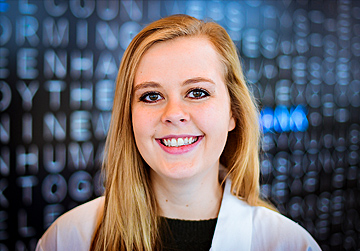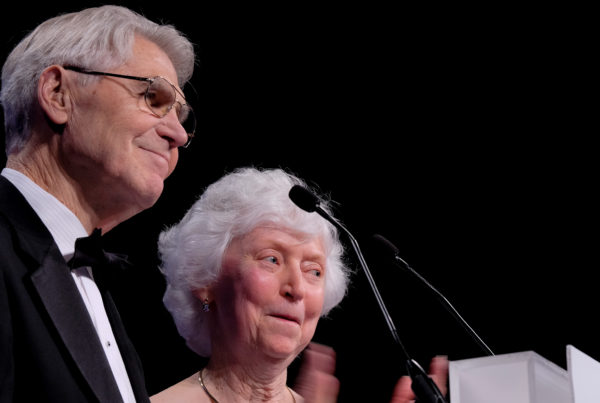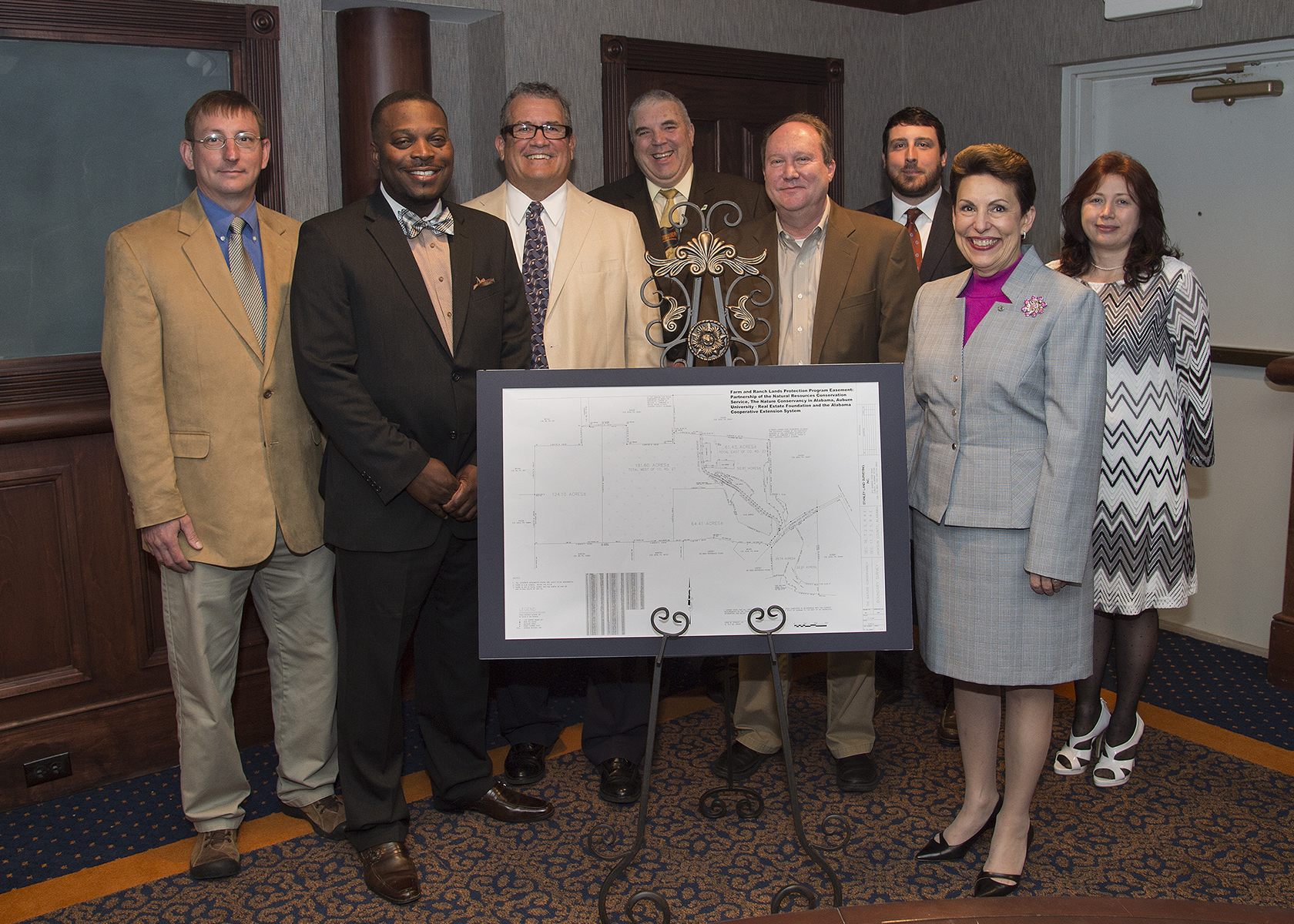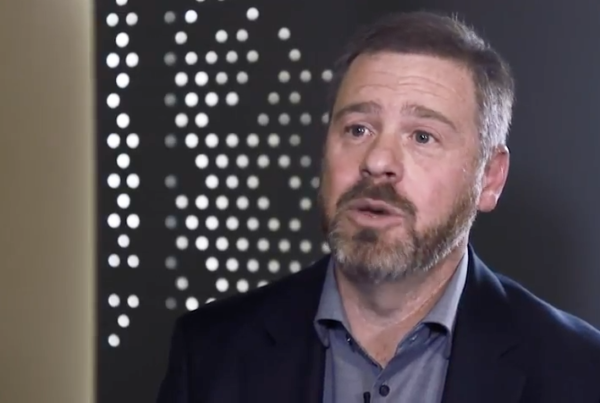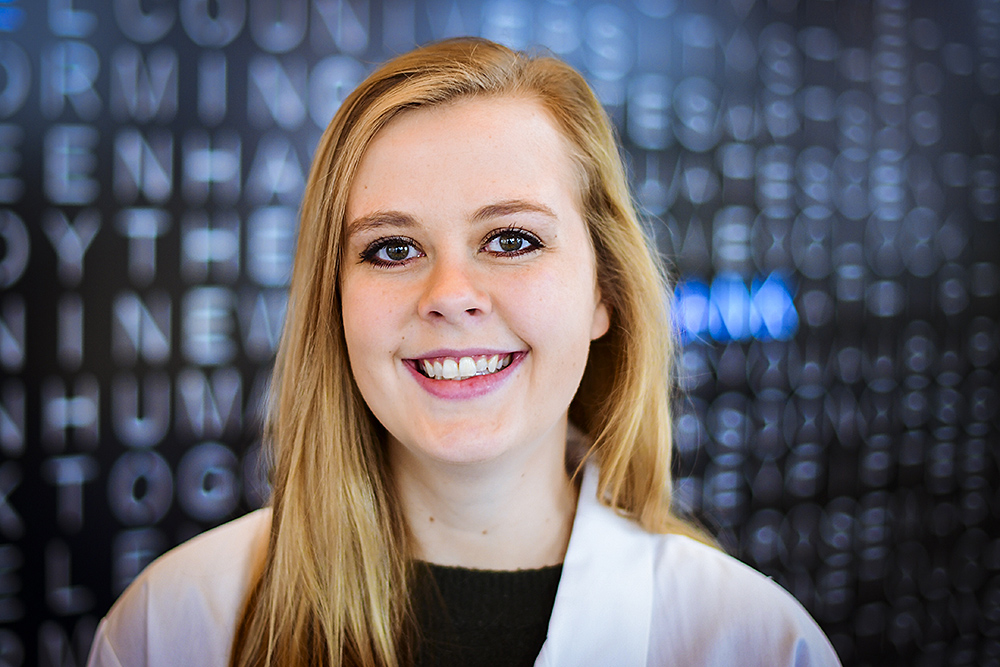
Shelby Osburn chases innovation in the same lab where she first fell in love with scientific discovery as an undergraduate student.
A researcher in the Molecular and Applied Sciences Laboratory in Auburn’s School of Kinesiology, Shelby becomes completely animated when she talks about her research into the Long Interspersed Nuclear Element-1 or LINE-1 gene.
“LINE-1 is a very interesting gene,” explained the Oxford, Alabama native. “When you think about genes, you think about them in terms of being in charge of making you who you are — you get a copy from your mom and a copy from your dad. Those are protein coding genes. But this LINE-1 gene — it’s different.”
Shelby, a doctoral student in exercise physiology, is committed to thoroughly exploring this complicated gene, often linked to muscle degeneration. Her research examines the role exercise can play in combatting muscle loss brought on by LINE-1. Her pursuit is ambitious and has the potential to improve the quality of life and longevity of the world’s aging population.
People lose muscle mass at a consistent rate as they age. Because muscles are responsible for moving, getting out of the chair, and other basic tasks, losing even a moderate amount of muscle mass could impair the ability to do these daily tasks.
“We know this gene increases in muscle tissue with age, and we think it’s contributing to muscle loss and tissue inflammation that breaks down muscle proteins,” Shelby said. “The focus of my dissertation is to do a life-long exercise study, hoping to prove that in addition to being good for you throughout your life, exercise as you age produces a better quality of life.”
Mike Roberts, associate professor in the School of Kinesiology, directs the laboratory in which students like Shelby find practical solutions for today’s issues.
“What inspires me and what I believe also inspires students like Shelby is a pursuit of truth,” he said. “The observations we make here lead to bigger discoveries and findings. And that leads to real solutions for people; and then to more research.”
Shelby would not be forging the path she is on today had she not had the opportunity to pursue research experiences as an undergraduate. Student research opportunities are essential to shaping future discovery leaders, as well as advancing the pursuit of knowledge across the university.
These experiences often are possible because of the generosity of donors like Compound Solutions, Inc., the Center for Applied Health Sciences, and JUVN3 Holdings, LLC. These companies work together to research, develop, and bring to market products with real-world benefits for people in the areas of health, nutrition, and fitness.
Their investment in the Molecular and Applied Sciences Laboratory is empowering Auburn to produce future scientists whose quest for innovation changes lives.
“Our philosophy incorporates our desire to make a difference in the world and in our industry,” said Dr. Tim Ziegenfuss, chief scientific officer and partner of the Center for Applied Health Sciences and JUNV3 Holdings, LLC. “For us, that includes collaborating with partners like Auburn in the research domain as we continue to develop ingredients and solutions that help us improve health and wellness for people.”
The Education Annual Scholarship creates opportunities for students who are pursuing innovative academic experiences. With flexibility to award the scholarship to exceptional students who demonstrate academic excellence and financial need, Auburn’s College of Education can use this scholarship to recruit and retain outstanding student researchers like Shelby.

